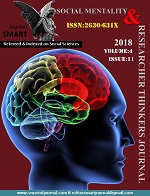Author :
Abstract
Hayatı temsil eden ürünler, sosyal, kültürel, ekonomik ve siyasal yönden yaşamı kolaylaştıran, canlının devamını sağlayan araçsal değerler olarak bilgi rejiminde, kritik işlev üstlenirler. İhtiyacı karşılayan bilme edinimi, sadece günlük yaşantımızı düzenleyen hayata dair ürünlerle sınırlı kalmaz, aklı meşgul eden soyut düşüncelere yanıt arandığı bilinmezlikleri de içerir. Soyut bilme edinimi, bilginin hiyerarşik iç düzenleniş biçimine göre yol alır, çıkarımları bilgi rejimine tabidir, bilinmeyen ve ona ait korku, endişe, tedirginlik, merak, vb. konular yapısal çelişkilerin çatışmasında ortaya çıkar. Bilginin iç mimarisi ve onu oluşturan elemanların keşfi, merak duygusunu harekete geçiren en önemli tahrik unsurudur, bilginin tekrar özne tarafından inşa edilmesiyle kazanılan deneyim asıl hoşluk duygusunu yaratan etmendir. Her bilgi sınırlı, sorumlu bir özelliğe sahiptir, dolaylı ya da ikinci, üçüncü derecede görev üstlenmesi de aynı doğrultuda bilme rejimine dahil olur, bu görevi genel bilginin karşılaması söz konusu olamaz. Bilme eylemi, bilginin bu yapısal özelliğine göre hareket eder, muhalefetini kendi içinden yaratır bu sayede var oluşunu tamamlar, yeni tezlerin çıkmasına olanak tanıyan, çoklu tartışmayı tetikleyen, kışkırtıcı, yaratıcı eylemler bilginin temel özellikleridir. Sadece eylemin geçiciliği üzerinden temsil hakkı bulunan düzenlemelerin, işlevlerini belli bir süreliğine yerine getirmeleridir, tüm kategoriler gelişim ve değişim yasasına tabi olmalarına rağmen ölümcüldür, içinden çıkan kavram da aynı akıbete uğrar. Hayatın genel akışı, sürekli bir devinimi mecbur eden özellik taşır, bu zorunluluk hayatın doğası gereğidir; içinde barındırdığı sosyal yaşam değişim ve gelişim yasasına uyması halinde bağımsız ve özgür hareket edebileceğidir.
Keywords
Abstract
Products that represent life have a critical function in an information regime as instrumental values that make life easier in terms of social, cultural, economic and political aspects and facilitate the continuation of a living being. Knowledge acquisition which meets needs is not limited to life-related products that organize our daily lives, but it also contains the obscurities where answers are sought for abstract thoughts that keep the mind busy. Abstract acquisition of knowledge extends towards the internal organization form of knowledge, and its inferences are subjected to the information regime, whereas issues like fear, concern, nervousness and curiosity that are unknown and belong to it within the conflict of structural contradictions. The internal architecture of knowledge and the discovery of the elements that form it are the most important trigger that stimulates the feeling of curiosity, and the experience that is gained by reconstruction of the knowledge by the individual is the actual factor that creates the feeling of pleasantness.Every piece of information has a limited, responsible characteristic, and its indirect, secondary or tertiary assumption of duty is involved in the information regime in the same direction, and it is not possible for general knowledge to perform this duty. The act of knowing works based on this structural characteristic of information, creates its opposition from within itself, completes its existence this way, and provocative and creative acts that lead to the emergence of new theses and trigger multilateral debate are the main characteristics of knowledge. This is the performance of functions by arrangements that only have the right to representation by the transience of the act for a certain period; although all categories are subject to the laws of change and development, they are fatal, and the concept that rises of them faces the same fate. The general flow of life has a characteristic that constantly forces a motion, and this obligation is due to the nature of life; this refers to the possibility of independent and free action as long as the social life within it complies with the laws of change and development.
Keywords
- ADORNO T.W – HORKHEİMER M (2013) Teori ve Pratik üzerine, Metis Yayınları, İstanbul. S.46
- ADORNO T.W – HORKHEİMER M (2013) Teori ve Pratik üzerine, Metis Yayınları, İstanbul. S.46 BÜRGER Peter (2012) Avangard Kuramı, İletişim Yayınları, 7. Baskı. İstanbul. S.52, 53
- GİDDENS A (2017) Siyaset, Sosyoloji ve Toplumsal Teori, Metis yayınları, 5. Baskı İstanbul. S.134 HARDT M - NEGRİ A (2015) İmparatorluk, Ayrıntı Yayınları, 8.Baskı. İstanbul. S.92
- SİMMEL Georg (2012) Modern Kültürde Çatışma, İletişim Yayınları, 8.Baskı, İstanbul. S. 56
- SPİNOZA (2017) Anlama Yetisinin Düzeltilmesi Üzerine İnceleme, Dost kitapevi, 2. Baskı, Ankara. S.31





